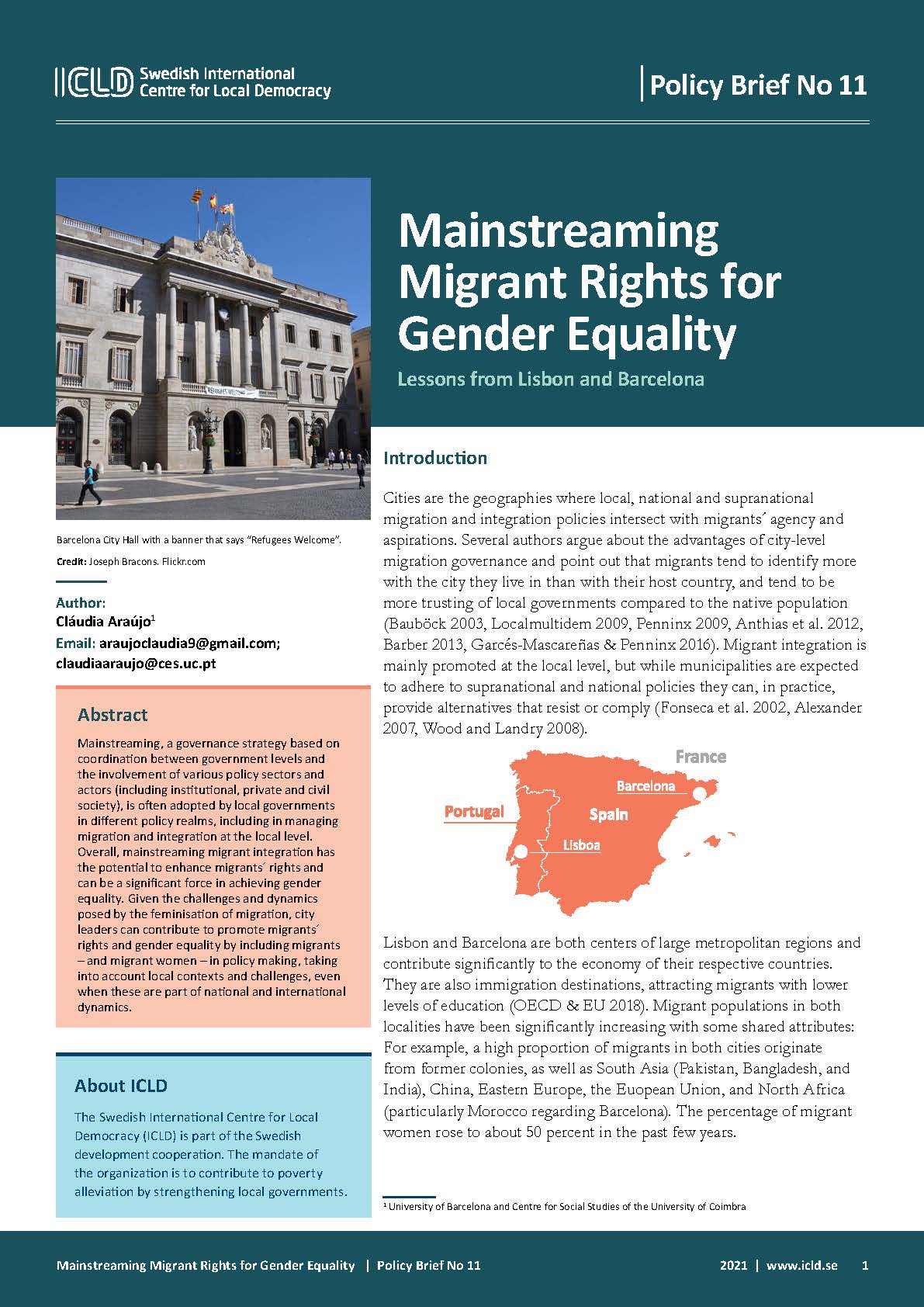Policy Briefs
-
Empowering Local Governments as Network Hubs in Facing Covid-19
Emergencies such as the COVID-19 pandemic can create tensions between national and local government when these are attempting to apply strategies to manage an urgent or major situation. This policy brief highlights the role of cities during the pandemic in terms of providing a link among citizens, and to the national government. Coordinating and connecting…
-
Migrants in the Pandemic and the Challenge for Local Government
This policy brief addresses a challenge for local government that has emerged with COVID-19,particularly in rural areas of developing countries. As the urban informal economy in India collapsed due to the pandemic, large numbers of people have been returning to their villages of origin in rural areas. However, some of their skills are not relevant…
-
Inclusive and sustainable waste governance: strengthening innovative linkages between local governments and waste picker organisations
This policy brief focuses on how local governments can develop more inclusive, democratic and sustainable waste governance by partnering with, and strengthening the role of, grassroots waste picker organizations and networks. Informed by action-research in Argentina, Brazil, Kenya, Nicaragua, and Tanzania, it shows how waste picker organisations are resilient forms of organizing which have contributed…
-
Mainstreaming Migrant Rights for Gender Equality: Lessons from Lisbon and Barcelona
Mainstreaming, a governance strategy based on coordination between government levels and the involvement of various policy sectors and actors (including institutional, private and civil society), is often adopted by local governments in different policy realms, including in managing migration and integration at the local level. Overall, mainstreaming migrant integration has the potential to enhance migrants´…
-
Conducting Municipal Council Meetings with Social Distance
This paper studies how COVID-19 related social distancing affects Swedish local council meetings and the situation for elected representatives. It is based on interviews with local political advisors, a professional group employed to assist elected representatives in their political work. Social distancing has affected the political agenda and the ways of organising local politics; digital…
-
Using Social Norms to Fight Corruption in Local Governments
This policy brief looks into the role of social norms to fight corruption in the school system in the Cau Giay district in Hanoi. An ongoing research project has conducted multiple ethnographic field studies in schools and included parents, teachers, and other school personnel in the research data. Their experiences and reflections are the core…
-
City-to-City Peer Learning to Accelerate Localization of the Sustainable Development Goals and the New Urban Agenda
This policy brief presents challenges and experiences ofdifferent cities and the possible strategies to accelerate theachievement of Sustainable Development Goals (SDG) andthe New Urban Agenda as stipulated in the United Nationsdecade of action, to be addressed globally, locally and by thepeople. They are based on findings oftwo comparative projects undertaken by Mistra Urban Futures,an international…
-
Local Democracy in Health Emergency
This paper analyzes how local governments along with local communities have responded to the health emergency during the pandemic COVID-19. We conducted both content analysis and in-depth interviews to gather data. While the government followed a regulatory approach to enforce lockdown and health measures, we found that an inclusive and resilient community model may be…
-
Engagement of people with functional variation in the urban planning processes in Russia and Sweden
The inclusion of all people in local political and urban planning decision-making is one of the foundations of local democracy. This briefing paper examines a simple transferable methodology for assessing the usability of our city spaces for persons with functional variation. The focus is on the everyday experiences as people use the city in their…
-
Community Currencies as means of Local Economic Empowerment
Community currencies have emerged as a tool for building more inclusive local economic development and governance. Grassroots organisations in Nairobi and Mombasa (Kenya) have been experimenting with this form of local monies. Communities in informal settlements in Kisumu have shown interest in introducing their own community currency. Challenges remain concerning the best diffusion strategy of…


